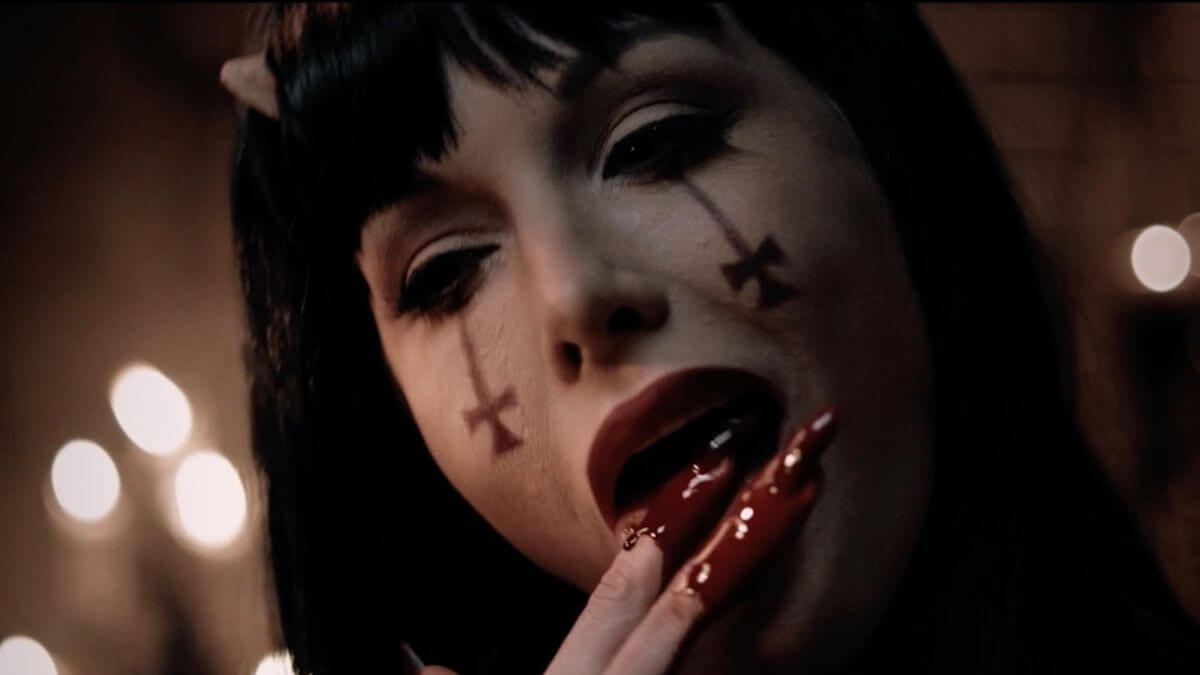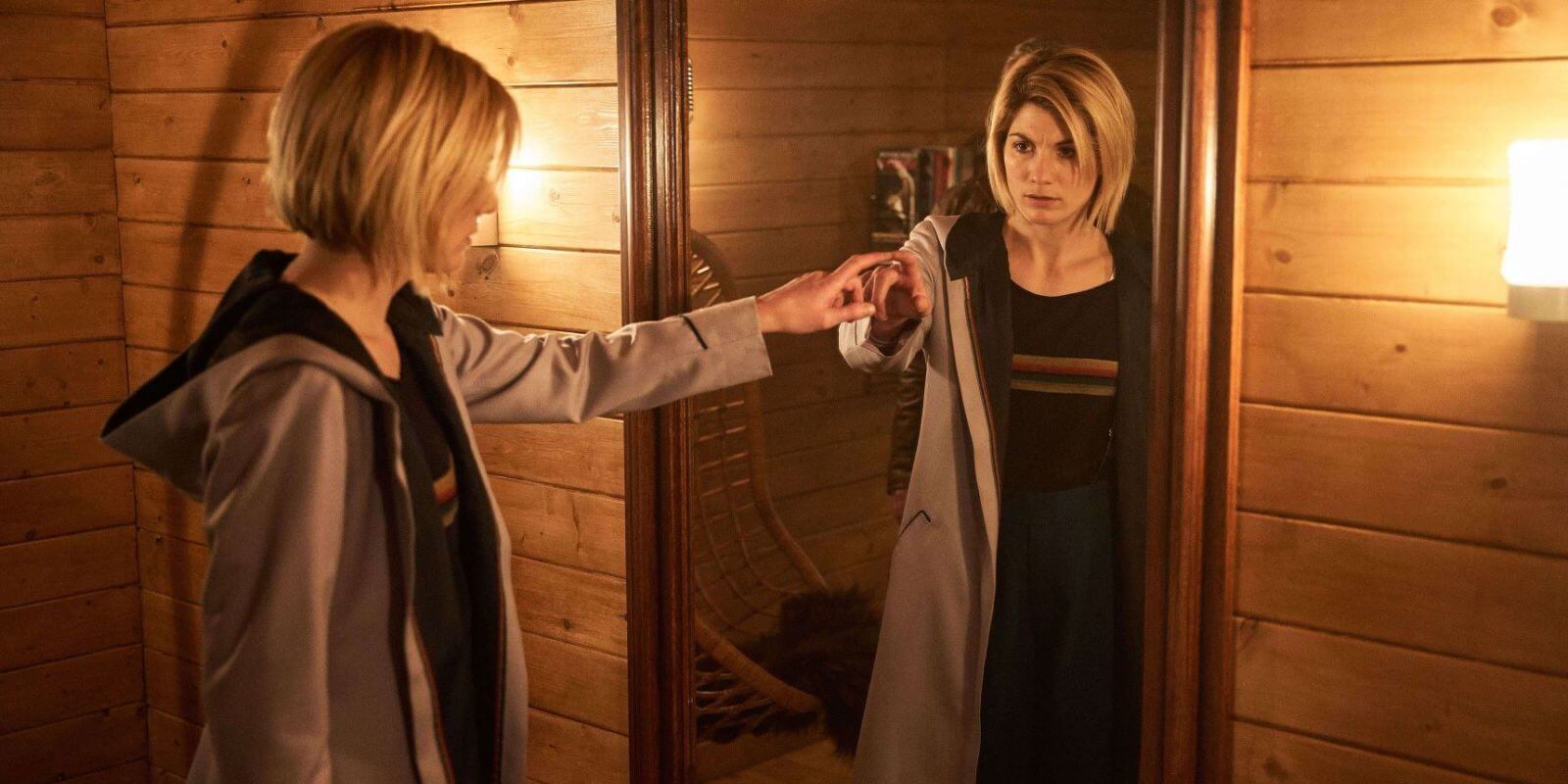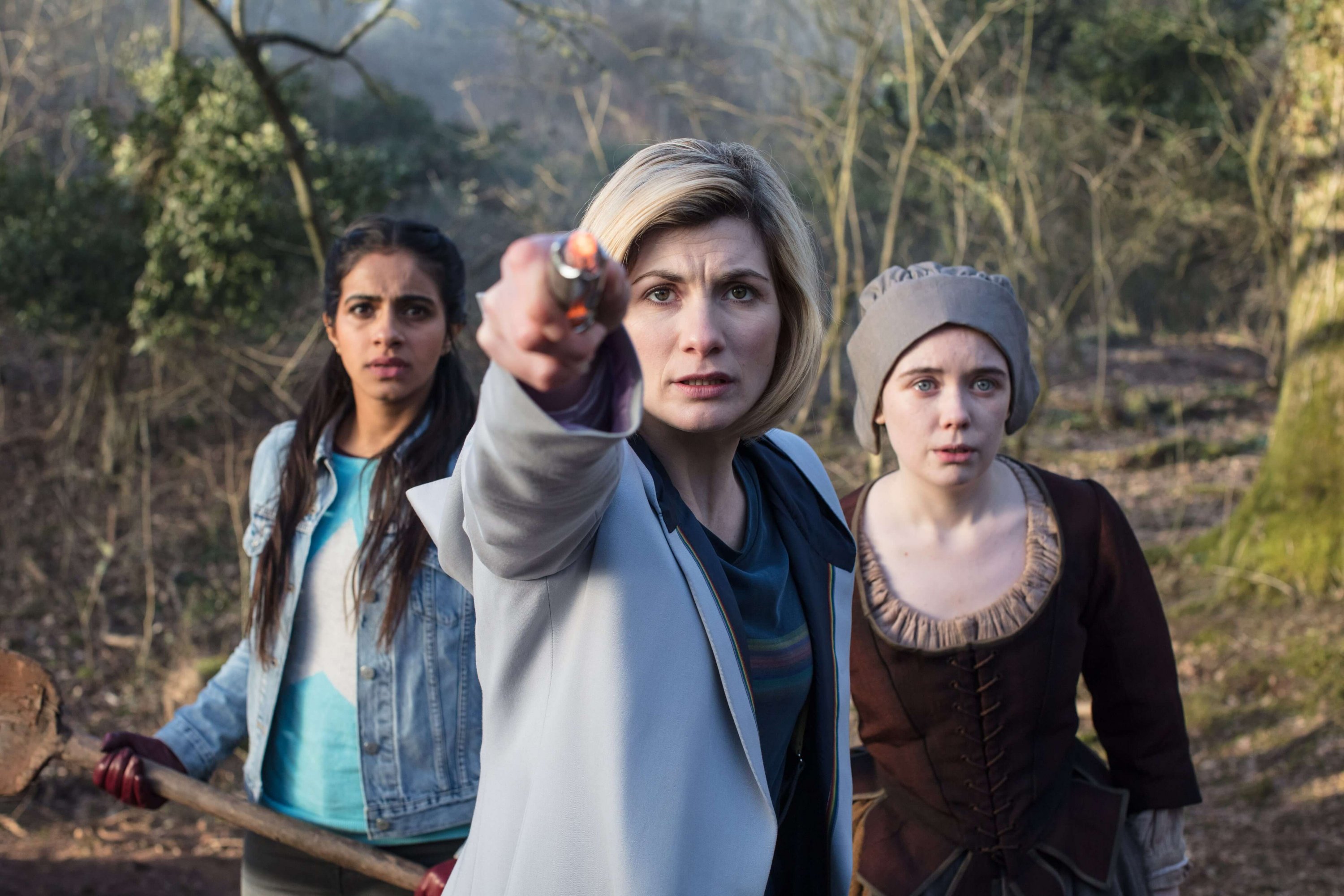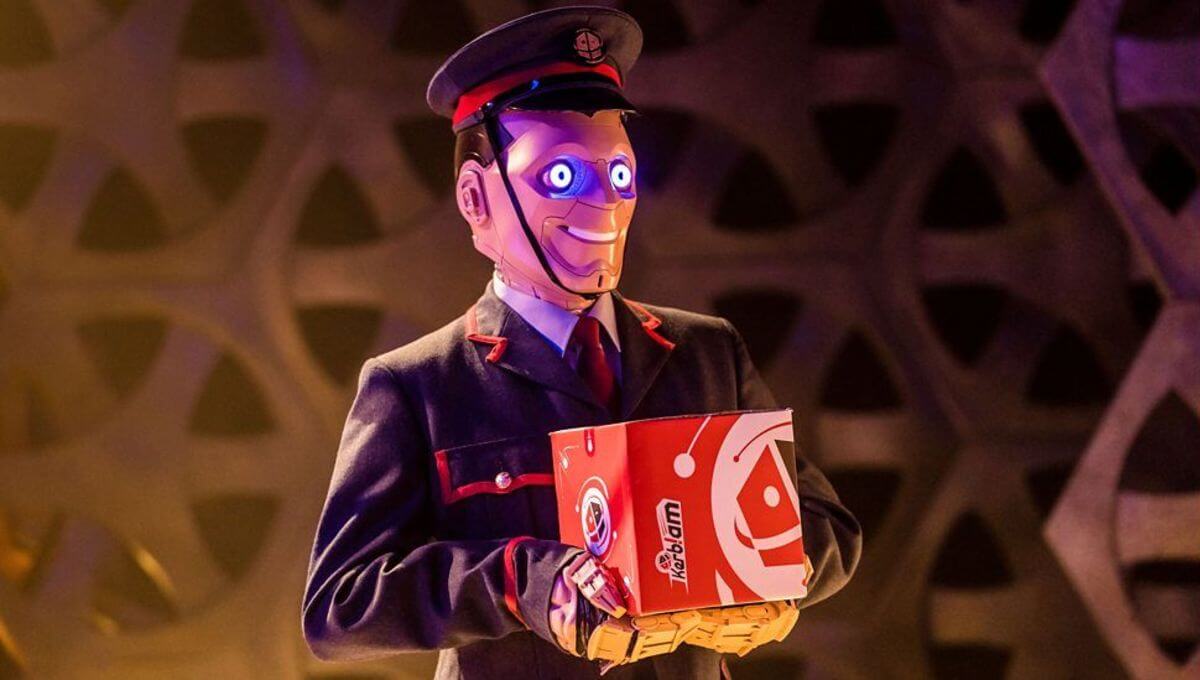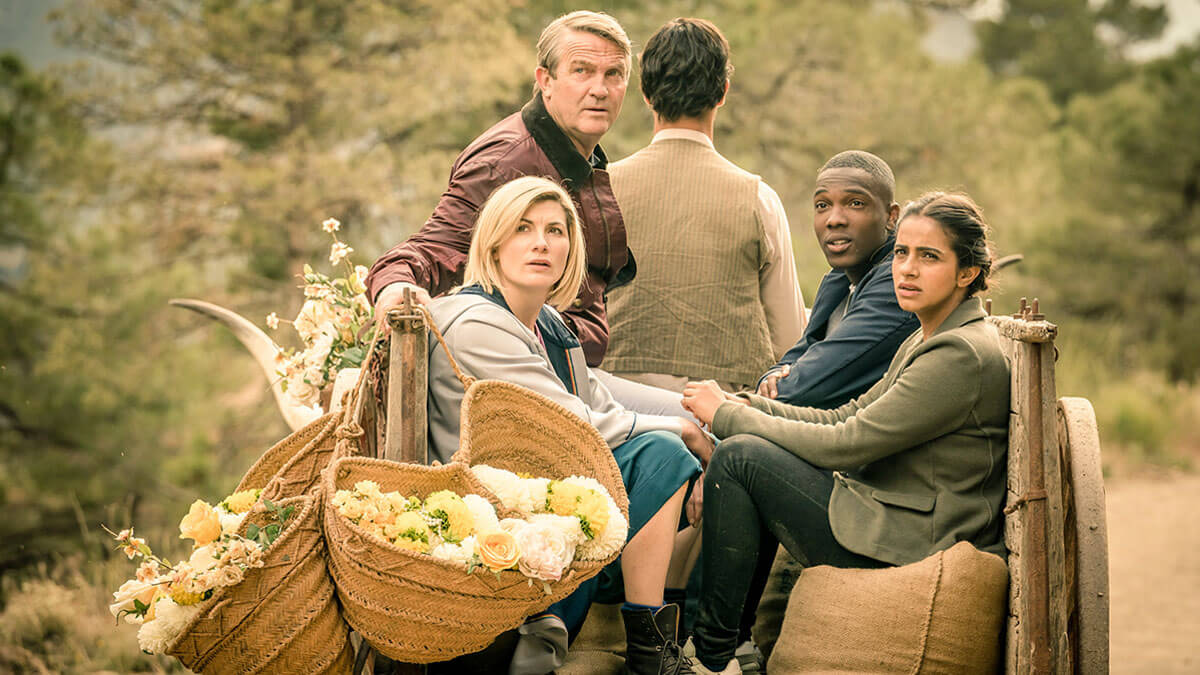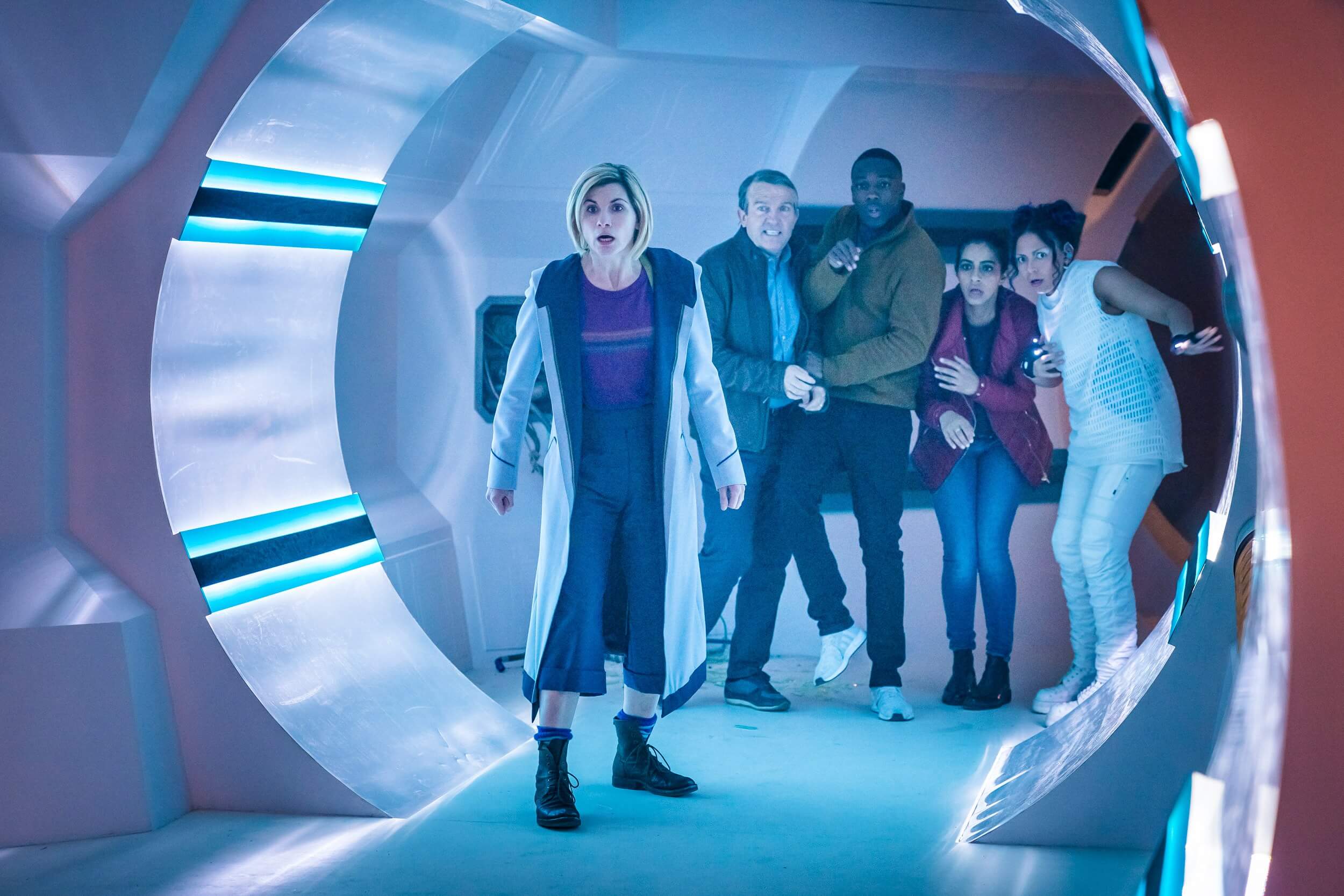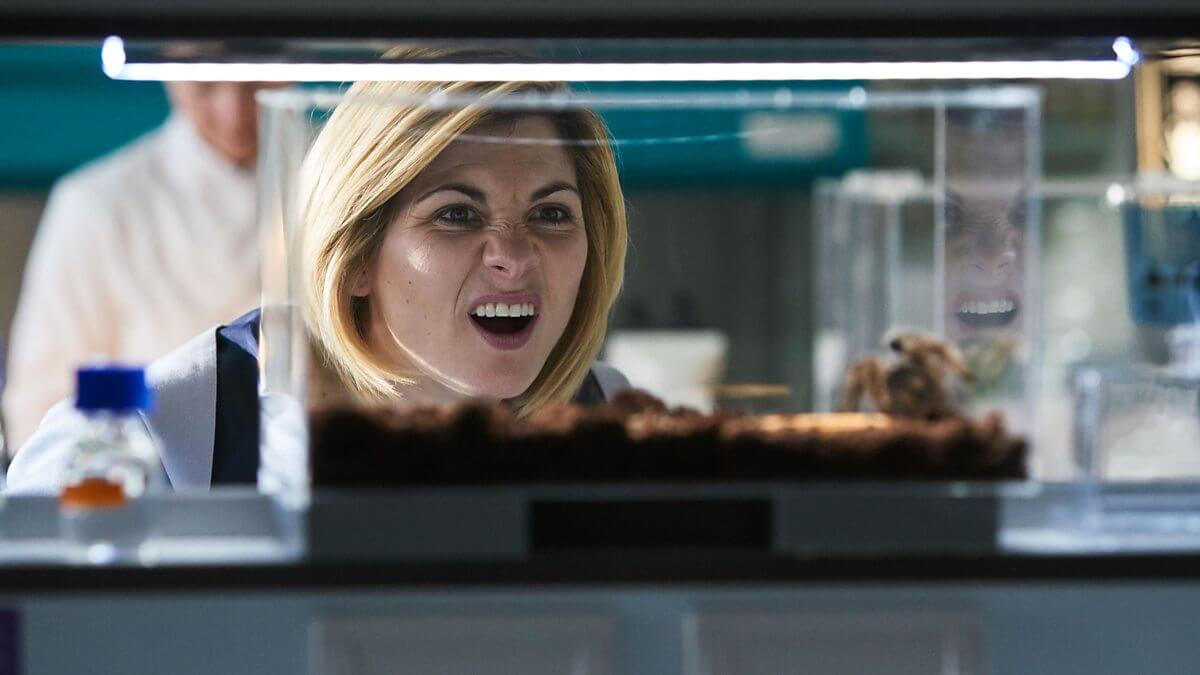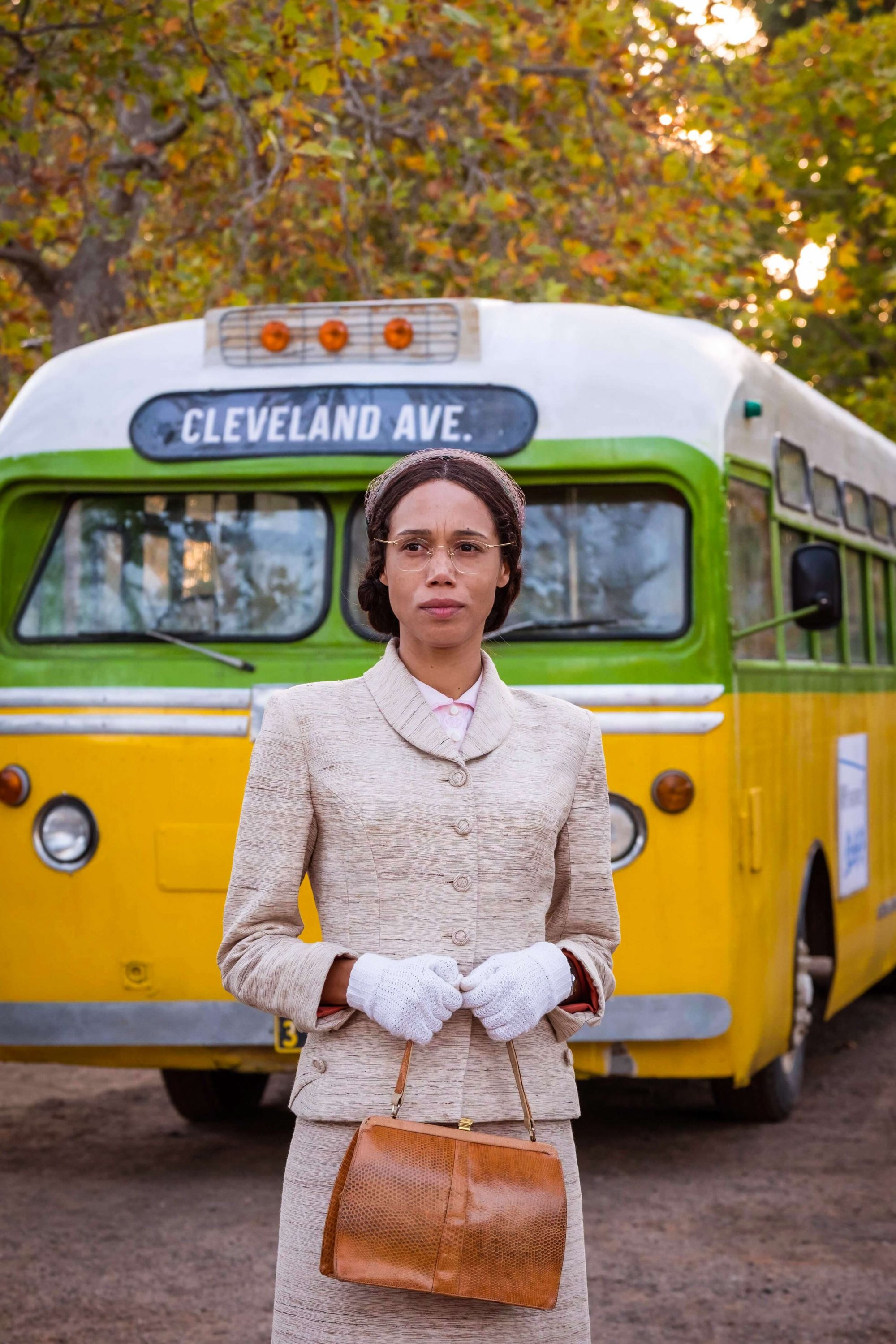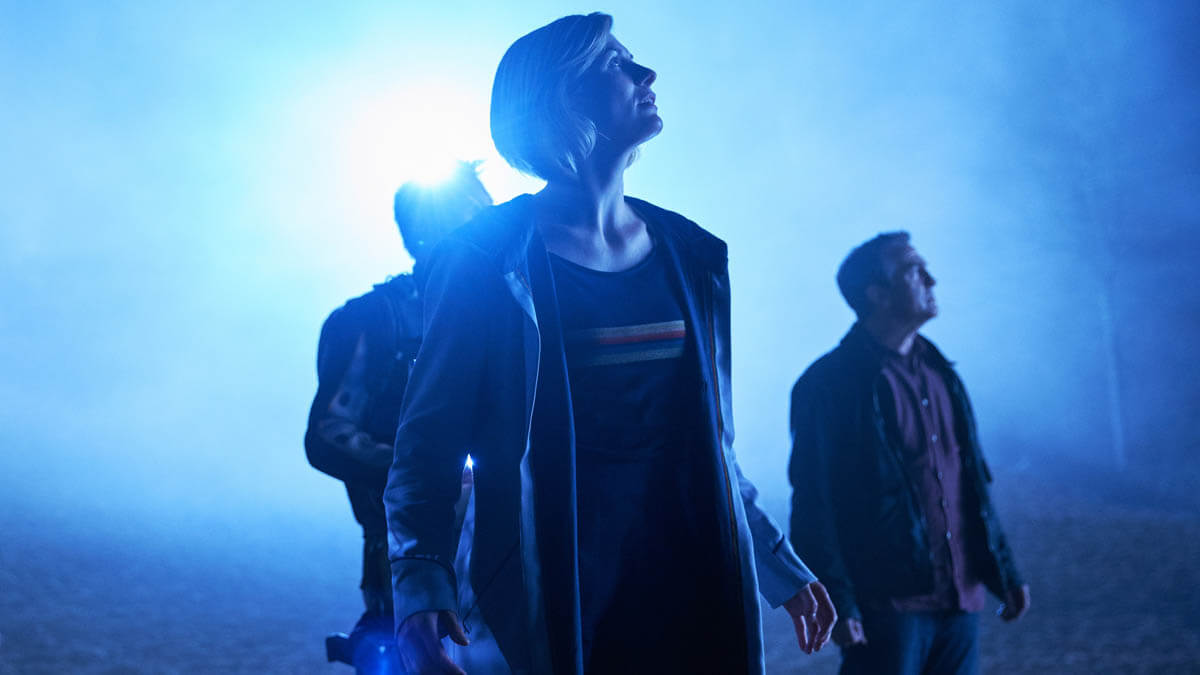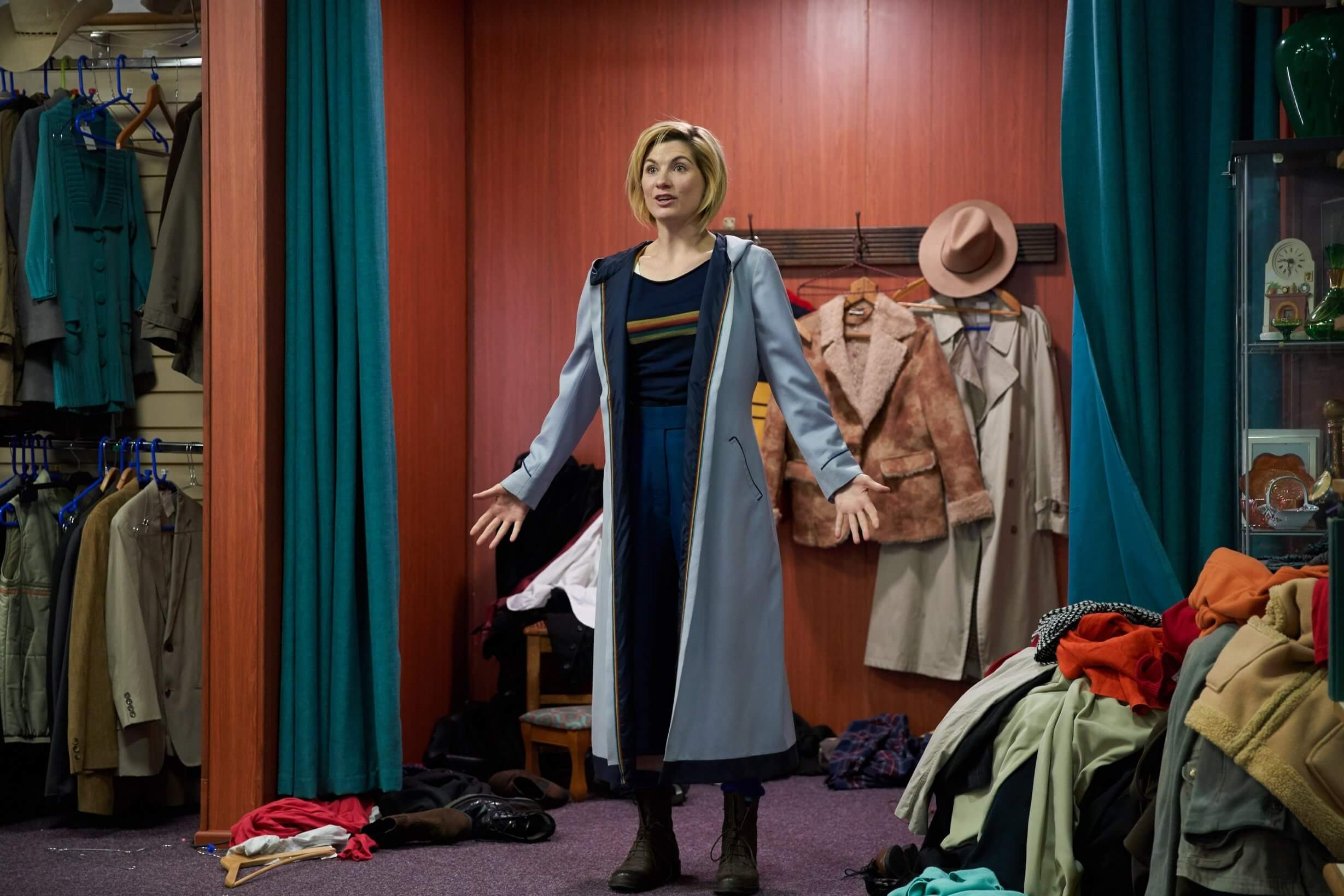The real conundrum thrown up by The Tsuranga Conundrum is, how do we go from the best of intentions – because nobody sets out to make a dull or uninspired production, no matter that it’s apparently the studio-bound mid-series quickie – to something that’s, at best, a bit lacklustre? All the elements are in place for a potentially cracking episode of Doctor Who; this had the set-up of something like Alien, a not-unlikeable cast and some beautifully designed and executed sets. Oh, and the creature, once it appeared, was exquisitely animated even if the concept and design were residing in different galaxies from one another. And the narrative, such as it was, was perfectly reasonable; this was Doctor Who as procedural in much the same way as the last two episodes had been, with roughly the same amount of logic and motion and there was nothing especially you could put your finger on and get burned by.
Yet once all this found itself in the pot together, it never really got cooking. It just kind of sat there, a meringue mixture filled with all the correct ingredients in essentially the right proportions, waiting to be mixed and cooked – and perhaps it was the lack of mixing that left it undercooked, because it’s become so easy this year to spot what Doctor Who’s doing, even the surprises aren’t remotely surprising.
Which begs two questions. How deliberate is the lack of mixing? And how important is the distinction? Because something really strange has happened this series, and it’s becoming more and more apparent in fans’ reactions to the episodes: Doctor Who is leaving much of its invested viewership behind.
So, let’s talk about mixing (after all, we had a rapper in the house this week).
Ordinarily, a lot of drama – and in particular Doctor Who – functions by working on multiple levels at the same time; one of the criticisms levelled at the previous regime was that people couldn’t follow the plots, or didn’t care about the characters, and this despite Steven Moffat doing everything Russell T Davies had previously done. Except Moffat tended to throw in one extra level of allusion and his varnish of comedy tended to be more evidently self-aware (Davies’ was just moderately self-aware). Chris Chibnall, on the other hand, despite being plentifully experienced at working to much the same template, has apparently deliberately chosen this year to make a version of Doctor Who where the ingredients are all laid out in a line in front of us. This doesn’t necessarily have to mean those ingredients are any less tasty – after all, a meringue isn’t the only thing you can make with sugar and eggs – but it does mean it’s very easy to sit there and spot ‘the sciencey bit’ or ‘the emotional bit’, and for a fandom that’s become used to showrunners who’re a whizz at baking up those ingredients till the constituent parts are invisible, stories like this in which they’re a plain as the egg on your face are a bit harder to stomach.
That doesn’t make this bad television, it just means it’s a rather odd Doctor Who.
And does it matter? Well, the answer to that is a rather puzzling yes and yes. Yes, on the one hand, because as Doctor Who fans, we don’t expect to be as spoon-fed as we are currently being (although sometimes we quite like it, if we’re completely honest). We like it when Doctor Who is simple and easy to follow, and predictable even, as long as it appeals to other parts of our fan-consciousness. So give us a bleak, lightning-rent planet and a performance like Philip Madoc’s and who cares about the illogicality, the disparate themes, and the predictable resolution in The Brain of Morbius. Woe betide you don’t include anything comparable, though.
But on the other hand, this isn’t Doctor Who for Doctor Who fans. And that’s the real puzzler. Because Russell T Davies didn’t make Doctor Who for Doctor Who fans either, yet his Doctor Who wasn’t like this. The difference is, Russell T Davies had a blank slate; Chris Chibnall doesn’t. Davies could essentially make any kind of programme he wanted, as long as it kept within a certain idea of the programme’s format. Steven Moffat inherited that programme, and pushed at the edges of what that format was – while still staying inside those boundaries. But after thirteen years of a particular kind of Doctor Who – Davies’, or Moffat’s Davies-squared – the programme has entered the arena of those things our TV audience takes for granted. And so the gradual decline in measurable viewing figures.
Chibnall hasn’t just moved Doctor Who to Sunday nights and cast an unexpected Doctor. He’s reprogrammed the cooker so that while the ingredients are all still there, the result is something entirely different. He’s made cookies, when we were hoping for meringue. And as lovely as cookies might be, they don’t have the sophistication or the skill in the execution. And when you’re used to the one thing, the other can be somewhat disappointing if not downright unpalatable.
But to people not used to the sophistication, this unsophisticated Doctor Who is just as nourishing in an easier-to-digest form.
The upshot is, this is a Doctor Who that’s patently working for everyone who ever thought that Doctor Who was something ‘a bit weird’. The ‘weirdness’ – the daffiness and idiosyncrasy; the flavour, maybe – has been whisked out of view. And what we’ve been left with is a Doctor Who that performs and functions according to its needs, but isn’t really then giving us a flavour or a texture to tingle our taste buds. It’s not quite Doctor Who-by-numbers, and that ‘weirdness’ really is still there; it’s inherent. It’s just hiding.
Hiding rather too well this week. The four regulars were great and Ryan and Graham in particular had some terrific moments. The rest? Russell T Davies once said he refused to set any story on the alien planet Zog because why would anyone watching care what happened there? That was The Tsuranga Conundrum’s biggest problem; in between all the gabbing and the explaining and the urgent standing around, and a final fifteen minutes where the tension did arise and this was not – by any stretch of the imagination – an episode without its moments, it didn’t really ask you to care.
And so whatever good intentions the production started out with, somewhere between the writers’ room and the director’s camera, the ingredients wound up being exposed. The problem set by the episode’s title (itself an allusion to Davies’ Zog that might have been better avoided) and its solution were fine. Everything else was fine. The characters were fine, the acting was fine, the photography was fine. But a whole lot of fine tends to have a negative effect when blended together; there wasn’t any pizzazz on the menu, and so the cook rustled up something less than whelming.
DOCTOR WHO SERIES 11, EPISODE 5: “THE TSURANGA CONUNDRUM” / WRITER: CHRIS CHIBNALL / DIRECTOR: JENNIFER PERROTT / STARRING: JODIE WHITTAKER, BRADLEY WALSH, TOSIN COLE, MANDIP GILL, BRETT GOLDSTEIN, LOIS CHIMIMBA, SUZANNE PACKER, BEN BAILEY SMITH / RELEASE DATE: AVAILABLE NOW ON I-PLAYER (AIRED NOVEMBER 4TH)

